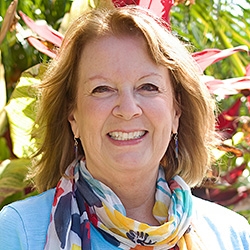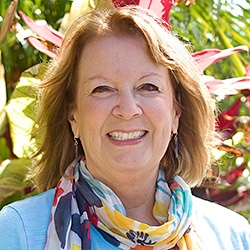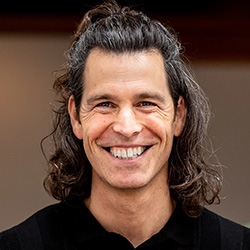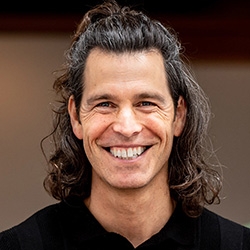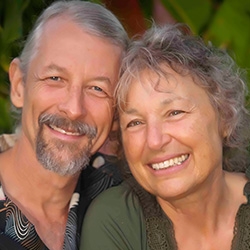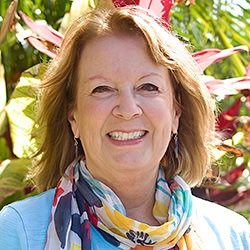

Search Results: emotion
-
Sylvia teaches emotion management, connecting feelings to needs, and "Screaming in Giraffe."
-
Trainer Tip: Take a moment to consider feelings, our conditioning about expressing or even feeling emotion, and the value of re-evaluating our relationship to feelings.
-
When deciding if someone crossed your boundaries and how to respond, you may get conflicting opinions on it. These opinions can be coarse attempts to manage life with rules about what should(n’t) happen. Instead, so that you can find where you want to invest your energy, ask yourself questions that reveal what for you is truly in integrity, nourishing, connects to your heart, and deepens self understanding. Read on for examples.
-
Read how an American Buddhist NVC teacher with Jewish roots reflects on how any dehumanization in the Israel-Hamas conflict can be used to justify all kinds of violence that can escalate for generations. With acknowledgment of the complexities, his desire is for us to bring in respect, dignity and peace -- for both Israelis and Palestinians. He emphasizes compassionate advocacy of all humanity amid the ongoing crisis.
-
Experience a powerful blend of Nonviolent Communication and Emotionally Focused Couples Therapy.
-
Trainer Tip: It can be more productive and satisfying to focus on what we want than on what we don’t have or don’t like. What will help rectify the situation? What would you like someone to do now or next time? This can eliminate much of the emotional pain caused by berating yourself or others. The moment your focus is on what is wrong with your life or what's lacking, take a moment to shift it to what you want.
-
When it comes to self-sabotage and self-limitation, what's happening when we make ourselves smaller than we are? And what is it with the crippling experience we suffer when we exceed our own self-imposed limitations? What unconscious needs is your nervous system meeting by remaining small? Read on for the insights of Beatrice Beebe's research on biological imperatives, emotional language, and emotional limitations.
-
Conflict is a normal and natural part of life. To varying degrees, it happens whenever two or more people consistently spend time together. Resolving conflict effectively and peacefully, in a way in which all parties feel respected and valued, does not feel natural for those of us who grew up with punitive, adversarial, or avoidant approaches to conflict. Eric offers some tips for approaching conflict.
-
Much like other asymmetric relationships (such as therapist and client), there are complications related to power dynamics that can arise with any NVC trainer having sex with a participant. For one, there's (counter)transference. And there's potential for things that may not move outside this asymmetric relationship -- such as projections where the participant, and/or the trainer, is guided by un-healed pain of their "inner child".
-
- Learn how to use empathy to dissolve conflict
- Deepen your NVC skills to help let go of judgments
- Explore approaches for asking for what you want
- Listen to the conflict within yourself
-
Strengthen your NVC practice to meet conflict with empathy, and ask for what you need.
-
Yoram Mosenzon explores the core NVC principle that others do not cause our feelings—our interpretations and unmet needs do.
-
Dear friends,
#UnlockYourAuthenticVoice
This has been on my mind lately. What does it mean to unlock my authentic voice? How do I talk about things that matter to me without creating emotional distance between myself and others? I’ve found this especially challenging after the US presidential election this month— half the voters are devastated by Donald Trump’s election, and the other half are elated. The extremes are vast. Sometimes imagining a coming-together feels hopeless.
-
-
-
Explore Self-Empathy with a unique four-step process ending in gratitude.
-
- Adapted from Marshall’s bestselling book and taught in his own words
- Learn how to utilize empathy to safely confront powerful emotions
- Discover how to overcome the blocks to compassion
- Open to your natural desire to enrich the lives of those around you!
-
Jim and Jori share their work integrating Martin Seligman's work on Positive Psychology with Nonviolent Communication in a system they call REMAP, focusing on relationships, engagement, meaning, accomplishment and positivity.
-
The regeneration movement employs practices for healing our planet from damage, and boosting Earth sustainability. Environmental and social degradation is deeply connected -- as it comes from the same extractive, exploitive mindset of economic and related systems. Connecting with universal consciousness and needs underlying conflicts, we connect with commonality of all planetary life. This helps tap new abilities for working together. This can contain power to regenerate and heal ourselves and Earth.
-
Recently, I have been pondering anger, how I express it and the jackal story I tell myself about it. Marshall Rosenberg taught that anger is a natural emotion that is based on a judgment of someone else or myself. I agree with this, so I have been doing some “enemy images” and self-empathy work (and praying for those who are most likely to be the recipients of my anger). My goal was to clear my judgments and take responsibility for my “stuff.” It has helped a lot, and yet I still feel a general anger in me that is not directly related to anyone or any specific situation.

Quick Links
Subscription Preferences
Stay In Touch!
Looking for ways to keep up with NVC Academy news, get special offers, free resources, or words of inspiration? Here are five ways to stay engaged:


